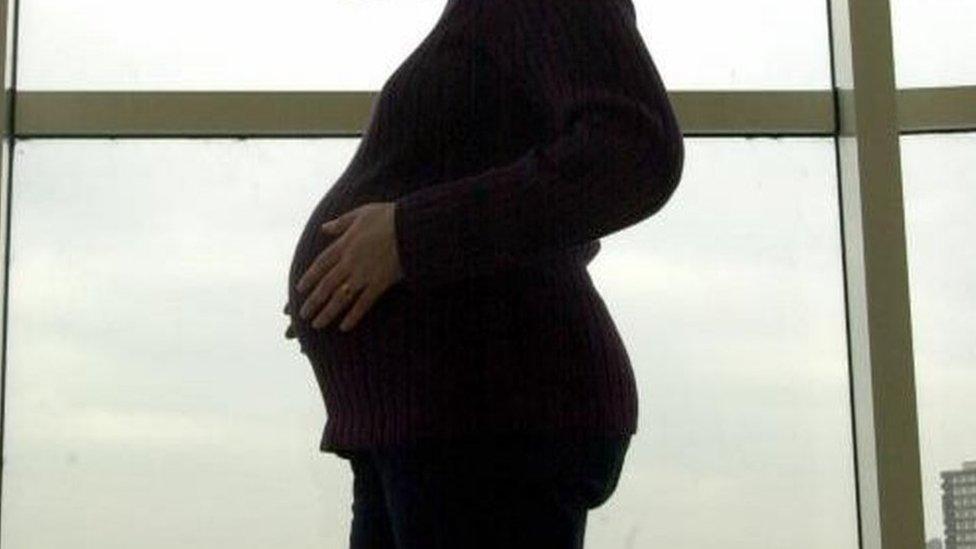Q&A: Abortion rules in Zika-affected countries
- Published

Some governments in Latin America have advised women not to get pregnant for a matter of months or years, because of the risk of birth defects from the Zika virus.
It is suspected that there is a link between expectant mothers getting Zika, and their babies being born with microcephaly (an abnormally small head). This can be deadly, and some children who survive face intellectual disability, vision problems and development delays.
A group of Brazilian lawyers, activists and scientists have decided to ask the country's supreme court to allow abortions for women who have contracted the virus.
Some people have argued that women have little choice over their pregnancies, as abortion and contraception are not widely available in the region.

What are the rules on abortion in countries affected by Zika and microcephaly?
Abortions are illegal in Brazil, except in health emergencies or cases of rape or the fatal foetal abnormality called anencephaly, where a large part of the brain and skull is missing.
Finding out about microcephaly "was the worst day of my life"
The mum of two teenagers with microcephaly who's helping worried new mums
Zika outbreak: What you need to know
Of the countries where women have been advised to postpone pregnancy:
In Colombia, abortion is allowed only in cases of fatal foetal abnormality, severe damage to the health of the mother, and when the pregnancy was the result of rape
Abortion is completely illegal in El Salvador and women face a jail term for having their pregnancies terminated in any circumstances
In Ecuador, abortions are only permitted to preserve the life or health of a pregnant woman, or when a woman with mental health problems has been raped
Abortion is illegal in Jamaica, except when the woman has been the victim of a sexual crime or when the abortion will save a woman's life. There are exceptions in case law to protect the woman's health
Puerto Rico is covered by the US Constitution which allows a woman to choose an abortion for any reason, but it has a law on the books that prohibits abortion unless it is to protect the woman's life or health
Where Zika cases have been confirmed in the region, only Guyana and French Guiana permit abortion without restriction as to the reason.

This baby, whose name is Juan Pedro, has eyesight problems associated with microcephaly

What are women being advised to do?
Governments across the region are advising women to avoid being bitten by mosquitoes, using precautionary measures like insect repellent, long-sleeved clothing - or even gloves - and covered shoes.
Women who are already pregnant are still encouraged to breastfeed, as it will not transmit microcephaly.
The Colombian government has recommended that pregnant women should stay above 2,200 metres, where mosquitoes tend not to go. Many big cities in Latin American are above this altitude.
When it comes to avoiding getting pregnant, contraception is in short supply in some parts of the region, especially in rural areas. The UN says, external that 20% of women in Bolivia and Guatemala - but just 6% of women in the richer country Brazil - who are sexually active are not using contraception, despite being fertile and not wanting to get pregnant.
The World Health Organization says, external the best form of protection against Zika is to prevent mosquito bites. But the International Planned Parent Federation says, external contraception and abortion must be included in the fight against the Zika virus.
Up to six out of 10 pregnancies in Latin America are unplanned, although estimates vary.

What has the Vatican said?
Latin America is largely Catholic. The Church opposes all forms of abortion. Contraception is also against Church rules, but this is more regularly flouted by believers across the world.
However, following a trip to Mexico in February, Pope Francis said: "We must not confuse the evil consisting of avoiding a pregnancy with abortion."
In some cases, he said, the "lesser of two evils" could be applied.
His remarks came in response to a question about how best to tackle the Zika outbreak across Latin America.

Do women still have abortions when it is illegal?
Yes.
Researchers at the Guttmacher Foundation, external said there were 32 abortions per 1,000 women in Latin America in 2008.